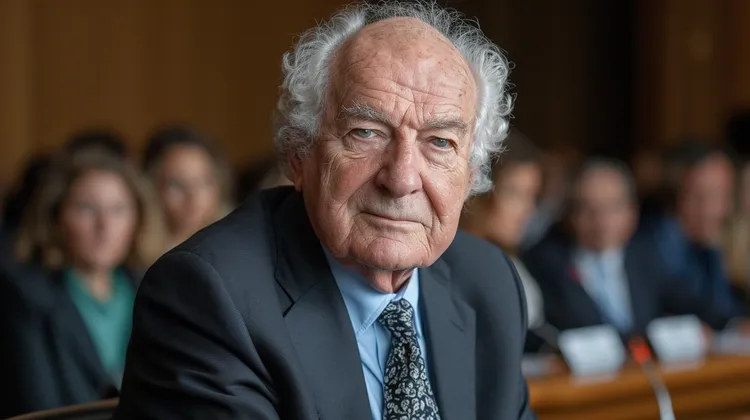
Howard Lutnick’s Knowledge on Tether’s Truth
Cryptocurrency has been shrouded in intrigue and speculation since its inception, and among the digital currencies, Tether has arguably been one of the most contentious. Amid lingering questions about Tether’s stability and transparency, names like Howard Lutnick have emerged in association, agitating curiosity around whether industry insiders like him are privy to the truths that elude the public eye. Howard Lutnick is the CEO of Cantor Fitzgerald, a renowned financial services firm, and has embraced the cryptocurrency world, hinting at a possible insight into Tether’s operations.
Tether, known as USDT, purports to be a “stablecoin,” meaning it’s pegged to the value of a stable asset, such as the US dollar. Given that the cryptocurrency market is prone to high volatility, stablecoins like Tether are supposed to offer traders and investors a safe haven. The premise is simple: one Tether token should always be worth one US dollar, providing a sort of digital balancing act between the traditional and the futuristic financial realms.
The transparency around Tether’s reserve holdings has been a subject of debate. The company behind Tether has faced numerous accusations and legal challenges regarding whether it holds enough dollar reserves to back all the Tether tokens in circulation. This is where the discussion pivots towards Howard Lutnick and his stance. As a seasoned player in the financial world, Lutnick’s insights into Tether could carry significant weight in either bolstering confidence in the stablecoin or validating the concerns of skeptics.
To date, Mr. Lutnick has not publicly divulged any inside information about Tether, nor is there conclusive evidence to suggest that he is in possession of any such knowledge. His expertise in the financial sector does, Afford him a refined acumen in assessing the legitimacy and health of financial instruments, Tether included. His perspective on the matter would be highly relevant in discerning Tether’s actual standing in the market.
One possibility is that Lutnick and his contemporaries in high finance have conducted their due diligence on Tether and its purported dollar backing. Their institutions may have their means of verification before engaging with Tether, given the potential risk it poses to their operations and reputations should the stablecoin fail to meet its claims.
The broader question regarding transparency in cryptocurrency operations echoes beyond Tether. Cryptocurrency, by its decentralized nature, resists the kind of regulation and oversight that traditional financial bodies impose. Howard Lutnick, with his background in a heavily regulated sector, might prefer—and advocate for—a crypto landscape that adheres to more stringent disclosure standards.
Still, it’s important to note that regardless of what industry leaders like Lutnick may know or believe, the onus is on Tether Limited, the company behind the token, to provide clarity and evidence of their reserves. Third-party audits and regular reports would offer the necessary assurance but have rarely been clear-cut in Tether’s history.
Lutnick’s potential insights may not only be valuable in understanding Tether specifically but also in shaping the future of regulatory frameworks for stablecoins and cryptocurrencies at large. If he possesses deeper knowledge regarding Tether, it could inform strategies of integration between traditional finance and the burgeoning digital economy.
Will Lutnick and his peers take an active role in demanding transparency, or will they adapt to operating within the current paradigms of the crypto market? The latter poses substantial risks, as evidenced by various high-profile failures within the industry, where lack of financial clarity played a pivotal role.
To speculate further, if Howard Lutnick knows the truth about Tether, it is not something he shares lightly. The repercussions of revealing sensitive information about a major cryptocurrency could be far-reaching, disturbing markets and influencing regulatory processes. As a figure with skin in the game, discretion in this context is both a matter of professionalism and strategic foresight.
Howard Lutnick’s relationship with Tether’s truth—if there is one—is a fascinating topic tangled in a web of finance, technology, and regulatory intrigue. It stands as a touchstone for the conversation regarding trust and transparency in cryptocurrencies. While we may not have clear answers about what Lutnick or any other industry titan knows about Tether, it is evident that the call for clarity and accountability in the crypto space is growing louder, and influential voices like Lutnick’s could be instrumental in driving this change.
2 thoughts on “Howard Lutnick’s Knowledge on Tether’s Truth”
Leave a Reply
You must be logged in to post a comment.
If Howard Lutnick gets involved with pushing for Tether transparency, that’d be huge! Crossing fingers for positive changes 🤞✨
I’m all for blending traditional financial practices with modern crypto needs. Informative article!